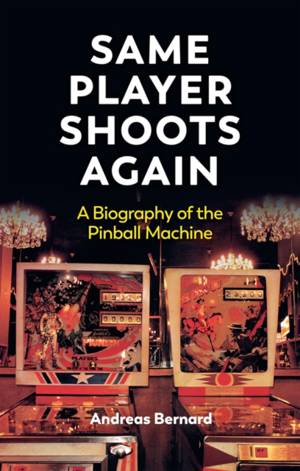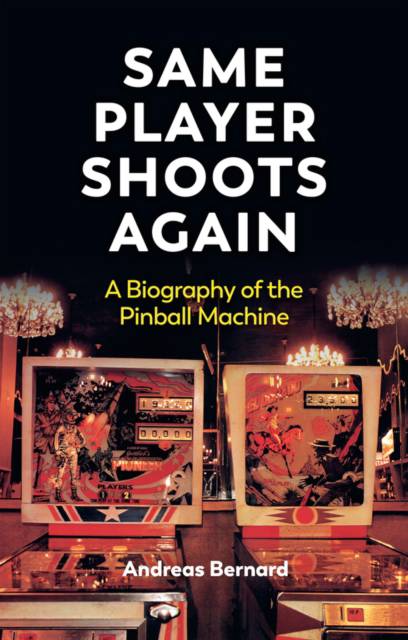
Bedankt voor het vertrouwen het afgelopen jaar! Om jou te bedanken bieden we GRATIS verzending (in België) aan op alles gedurende de hele maand januari.
- Afhalen na 1 uur in een winkel met voorraad
- In januari gratis thuislevering in België
- Ruim aanbod met 7 miljoen producten
Bedankt voor het vertrouwen het afgelopen jaar! Om jou te bedanken bieden we GRATIS verzending (in België) aan op alles gedurende de hele maand januari.
- Afhalen na 1 uur in een winkel met voorraad
- In januari gratis thuislevering in België
- Ruim aanbod met 7 miljoen producten
Zoeken
€ 48,95
+ 97 punten
Uitvoering
Omschrijving
This is an ode to the lost golden age of the pinball machine. These vivid, flashing portals of entertainment were mainstays of nearly every bar, pub and amusement arcade from the 1960s to the 1990s, but today they have all but disappeared. While the films and novels of Fassbinder, Modiano and Murakami testify to their past ubiquity, they are now mostly collected by private owners as souvenirs from a bygone age. Andreas Bernard, looking back on his coming of age as an avid pinballer, reflects on what the disappearance of pinball machines tells us about the modern transformation of leisure time and public spaces.
The demise of pinballing at the end of the 1990s converged with huge social shifts which eroded the distinction between work and leisure. Now we use the same screen to organize work and leisure, and games have been absorbed by a professionalisation of daily life that is impossible to escape. Is our free time, as we know it, really free? Bernard also shows how the replacement of pinball machines by pocket-sized vessels of distraction was accompanied by the ebbing away of social critique. Playing pinball and the critical discourse of alienation came to an end at the same time.
At times nostalgic and lighthearted and at others bitingly astute, this book will appeal to all pinballers, past and present, and to anyone interested in the changing world of culture, gaming and entertainment.
The demise of pinballing at the end of the 1990s converged with huge social shifts which eroded the distinction between work and leisure. Now we use the same screen to organize work and leisure, and games have been absorbed by a professionalisation of daily life that is impossible to escape. Is our free time, as we know it, really free? Bernard also shows how the replacement of pinball machines by pocket-sized vessels of distraction was accompanied by the ebbing away of social critique. Playing pinball and the critical discourse of alienation came to an end at the same time.
At times nostalgic and lighthearted and at others bitingly astute, this book will appeal to all pinballers, past and present, and to anyone interested in the changing world of culture, gaming and entertainment.
Specificaties
Betrokkenen
- Auteur(s):
- Vertaler(s):
- Uitgeverij:
Inhoud
- Aantal bladzijden:
- 112
- Taal:
- Engels
Eigenschappen
- Productcode (EAN):
- 9781509569434
- Verschijningsdatum:
- 16/03/2026
- Uitvoering:
- Hardcover
- Formaat:
- Genaaid

Alleen bij Standaard Boekhandel
+ 97 punten op je klantenkaart van Standaard Boekhandel
Beoordelingen
We publiceren alleen reviews die voldoen aan de voorwaarden voor reviews. Bekijk onze voorwaarden voor reviews.









